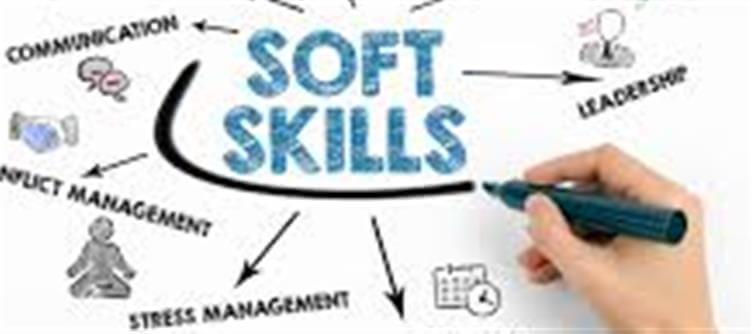
In a world dominated by AI, automation, and data, it might seem surprising that human-centric abilities are now the most sought-after workplace skills. The rise of soft skills—like communication, empathy, adaptability, and collaboration—is redefining what it takes to succeed professionally.
1. The Soft Skills Revolution
The Fourth Industrial Revolution is transforming the global job market. Machines and algorithms now handle routine and analytical tasks, leaving human qualities as the differentiator. Soft skills have emerged as critical for career growth, leadership, and innovation, leading to a “soft skills revolution” across industries.
2. Why Soft Skills Matter
Employers increasingly value professionals who can:
Think critically and solve problems creatively
Lead with empathy and emotional intelligence
Communicate effectively across teams and cultures
Adapt quickly in dynamic work environments
According to the World Economic Forum, skills such as people management, complex problem-solving, and emotional intelligence top the list of the most in-demand abilities for the modern workforce.
3. Top Soft Skills Defining Success
Here are the core soft skills professionals need today:
1. Communication – Clear verbal and written communication is vital. Presenting ideas, resolving conflicts, or crafting emails requires precision, clarity, and empathy.
2. Emotional Intelligence (EQ) – Understanding and managing your own emotions while empathizing with others is key to teamwork and leadership.
3. Adaptability – Rapid change is the new normal. Professionals who embrace change, learn quickly, and remain resilient gain a competitive edge.
4. Collaboration – Teamwork across disciplines, geographies, and cultures is essential in modern workplaces.
5. Critical Thinking & Creativity – Questioning assumptions, exploring new approaches, and generating innovative solutions drive progress and problem-solving.
4. Soft Skills in Leadership
Leadership today is no longer about authority or control—it’s about trust, influence, and vision. Leaders with strong soft skills can:
Build inclusive and motivated teams
Resolve conflicts constructively
Support employee well-being and mental health
Empathy has become crucial for managing hybrid teams, fostering psychological safety, and creating environments where employees can thrive.
5. How to Learn and Improve Soft Skills
Unlike technical skills, soft skills aren’t learned from books or code—they are cultivated through experience, reflection, and feedback. Effective methods include:
Public speaking workshops
Role-playing for conflict resolution
Group projects and collaborative assignments
Mentorship and coaching programs
Educational institutions and organizations are embedding soft skills development in curricula, training programs, and performance evaluations, ensuring the workforce is prepared for a human-centric future.
6. The Human Advantage
Ironically, as AI becomes more advanced, human qualities are what set professionals apart. Soft skills complement technical expertise, enhancing problem-solving, leadership, and collaboration.
Those who combine domain knowledge with emotional intelligence, creativity with communication, and adaptability with teamwork are best positioned for long-term success. Organizations that prioritize soft skills will see stronger cultures, innovative solutions, and more effective leaders.
7. The Takeaway
The soft skills revolution signals a profound shift in defining talent. In a world of rapid technological change, being technically competent is no longer enough. The ability to connect, empathize, adapt, and lead authentically is the real differentiator.
In 2025 and beyond, being deeply human is the ultimate superpower—and mastering soft skills is the key to thriving in the modern workplace.
.jpg)




 click and follow Indiaherald WhatsApp channel
click and follow Indiaherald WhatsApp channel